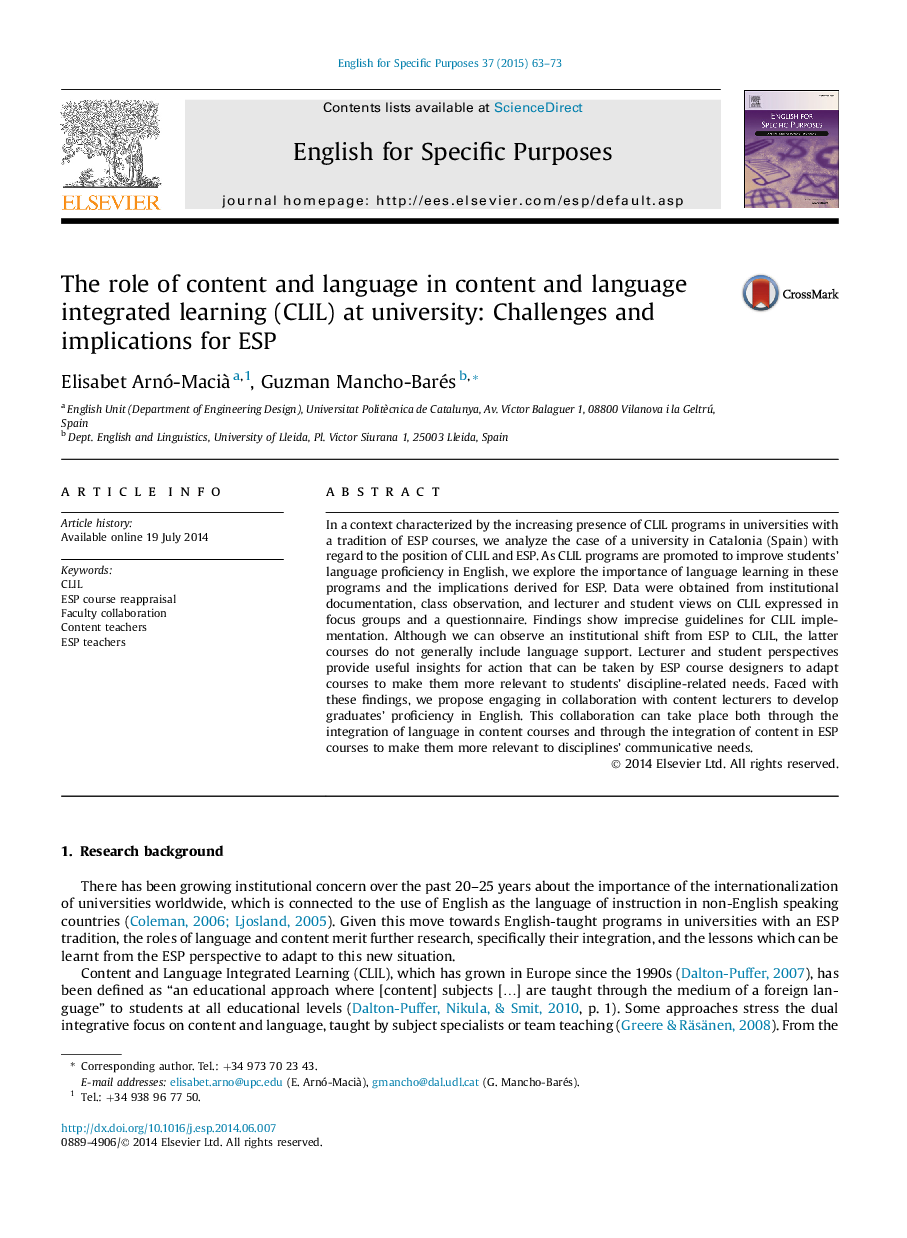| Article ID | Journal | Published Year | Pages | File Type |
|---|---|---|---|---|
| 355446 | English for Specific Purposes | 2015 | 11 Pages |
•Shift from ESP to CLIL courses in curricula.•Policy stresses foreign language competence, but no institutional support is provided.•Collaboration with ESP teachers in language development is needed in CLIL courses.•Reappraisal of ESP courses: more oriented towards discipline communication needs.
In a context characterized by the increasing presence of CLIL programs in universities with a tradition of ESP courses, we analyze the case of a university in Catalonia (Spain) with regard to the position of CLIL and ESP. As CLIL programs are promoted to improve students' language proficiency in English, we explore the importance of language learning in these programs and the implications derived for ESP. Data were obtained from institutional documentation, class observation, and lecturer and student views on CLIL expressed in focus groups and a questionnaire. Findings show imprecise guidelines for CLIL implementation. Although we can observe an institutional shift from ESP to CLIL, the latter courses do not generally include language support. Lecturer and student perspectives provide useful insights for action that can be taken by ESP course designers to adapt courses to make them more relevant to students' discipline-related needs. Faced with these findings, we propose engaging in collaboration with content lecturers to develop graduates' proficiency in English. This collaboration can take place both through the integration of language in content courses and through the integration of content in ESP courses to make them more relevant to disciplines' communicative needs.
